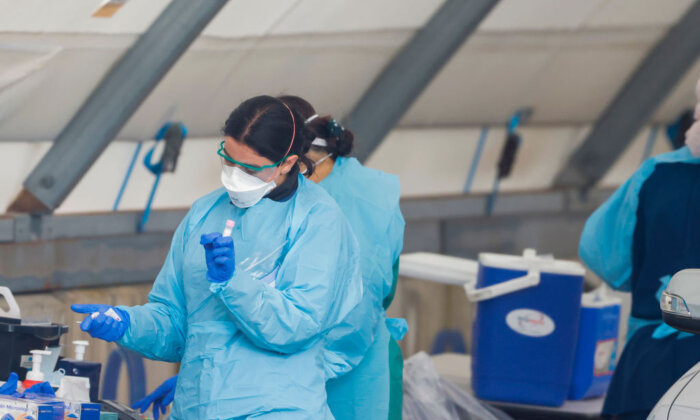The Australian Government Department of Health and Aged Care noted that ‘COVID fatigue’ became evident among Australians as the pandemic progressed. At the peak of the pandemic, the department received and moderated over 50,000 comments each month. This information was revealed in their response to the COVID-19 Response Inquiry, which received more than 2,000 submissions. The department actively worked to counter misinformation and quickly moderated social media posts to ensure credible COVID-19 information was distributed. They collaborated with peak bodies and government agencies to address vaccine hesitancy and ran social media ads to promote accurate information.
As the pandemic continued, the health department acknowledged that engagement became challenging due to COVID-19 fatigue setting in among the public. They also noted a decline in initial trust in government and COVID-19 messages as the pandemic progressed. The department realigned its messaging in the later stages of the pandemic to focus on priority groups and updated recommendations on vaccines and treatments.
The health department emphasized the importance of national consistency in messaging and understanding the impact of differing messages within the community. They recommended establishing mechanisms to agree on positions to avoid confusion among the public. Despite ongoing communication about COVID-19, the department shifted its approach to be more similar to other communicable diseases like influenza.
The health department highlighted their significant social media engagement, with their audience growing from 159,223 followers to over 1 million followers since the start of the pandemic. They partnered with various organizations to produce engaging educational content and attended events to promote COVID-19 messaging. Additionally, they distributed a vaccination update newspaper to over 37,000 subscribers weekly.
In terms of misinformation, the Home Affairs department referred thousands of social media posts to digital companies for review during the pandemic. Nearly 66 percent of these posts were removed by social media platforms. The department received funding to strengthen social cohesion and counter misinformation but noted that the contract for COVID-19 misinformation referrals expired and was not renewed.
Looking ahead, the health department recommended considering Australia’s sovereign capabilities for national medical stockpiles to ensure adequate supply channels for critical equipment during health emergencies. They highlighted the importance of preparedness for future emergencies beyond COVID-19 and emphasized the significance of testing in the country’s suppression strategy.
Australia also faced challenges with vaccine ‘wastage’ due to an oversupply of vaccines as demand decreased in mid-2022. The department is currently working on reducing waste while ensuring the availability of vaccines.
“In January 2024 Australia’s wastage rate was 35.41%, remaining within the WHO acceptable levels (15% to 40%) for multi dose vials,” the department stated.
“The Department introduced the COVID-19 Vaccine Administrative System (CVAS) to minimize waste and effectively manage vaccine stocks.”
Preparing For Any ‘Future Pandemic’
According to the health department, Australia’s response to the COVID-19 pandemic has been praised internationally and domestically for being strong, well-coordinated, and lifesaving.
“One of the main priorities for the Government and the Department of Health and Aged Care is to ensure Australia’s readiness to respond to any future pandemics,” the department emphasized.
Lessons learned from the COVID-19 pandemic have led to the development of new policies and programs that enhance Australia’s preparedness for future pandemics. Many of these initiatives are already in progress within the Department and across the Government.
An interim Australian Centre for Disease Control (CDC) has been established to prepare for public health emergencies.
The interim CDC is conducting training exercises, enhancing the national public health surveillance system, and bolstering health security.
“The Australian CDC will build upon the insights gained from the COVID-19 pandemic and play a crucial role in enhancing Australia’s capabilities to address future pandemics. It will enhance national communication, coordination, and collaboration among different jurisdictions, as well as strengthen emergency response capabilities and improve the prevention, detection, and monitoring of communicable diseases.”
Source link




